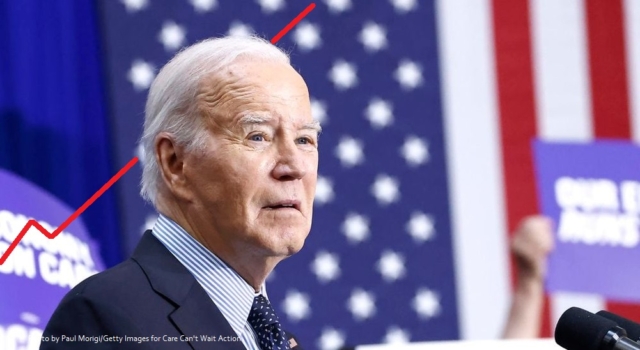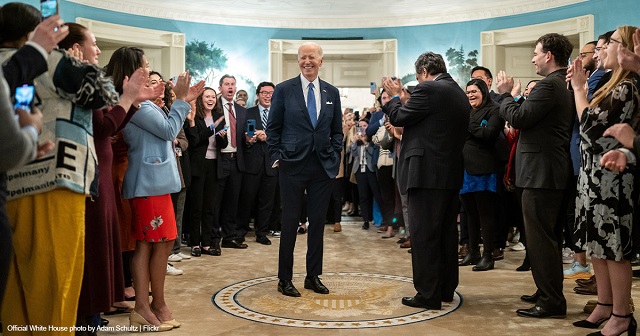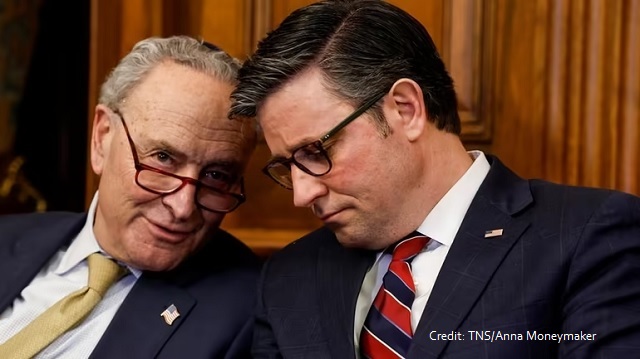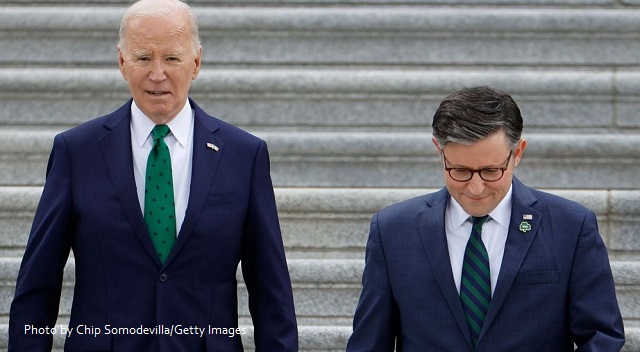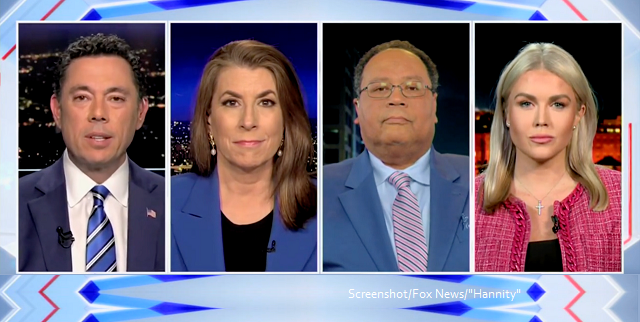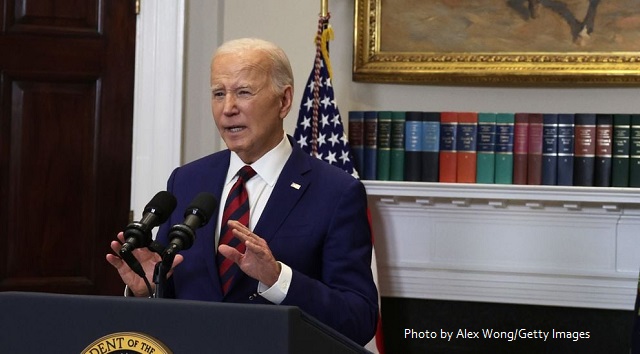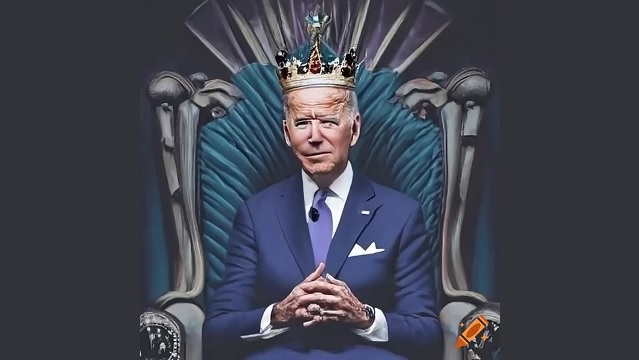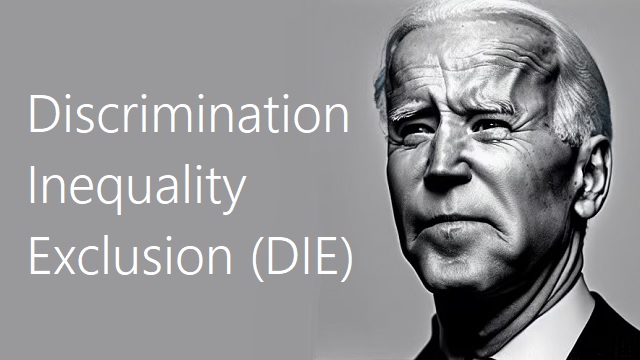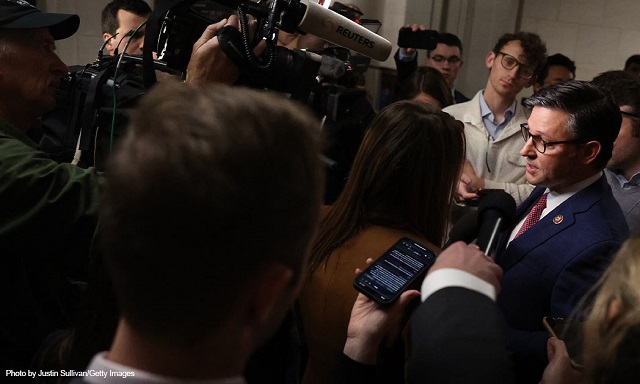Biden Reportedly Has No Plans To Address Inflation With Policy Changes Before Election
By The Daily Caller
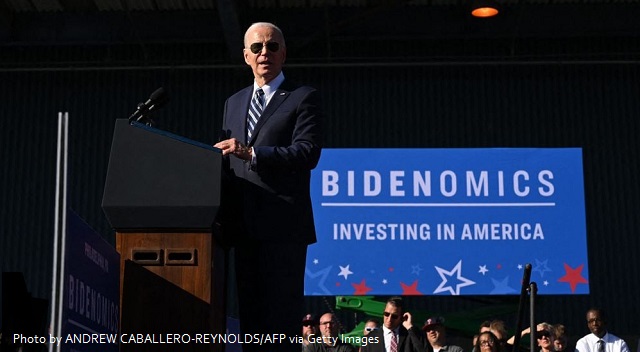
President Joe Biden reportedly has no plans to address inflation with policy changes ahead of the 2024 election, officials told the Wall Street Journal (WSJ).
The issue of inflation and how the Biden administration will address it has resurfaced after the consumer-price index (CPI) increased to 3.5% in March, a figure that is higher than what was anticipated, according to the WSJ. While the White House issued a statement touting how the administration has done “more to do to lower costs for hardworking families,” the president and his aides are reportedly not planning to make any policy changes to address the rising issue, officials told the WSJ.
Instead, the White House is reportedly planning to continue to tout the president’s efforts to lower prescription drug prices and house costs, the WSJ reported.
“Our agenda to lower costs on behalf of working families is as urgent today as it was yesterday,” Jared Bernstein, the chair of the White House Council of Economic Advisers, told the WSJ. “We’re just going to keep our heads down and continue fighting to lower costs.”
As the 2024 presidential election inches closer, the president and his allies have abandoned the use of “Bidenomics,” the branding coined to promote Biden’s economic policies, according to an Axios analysis. The president has not used the term “Bidenomics” since Jan. 25 aside from a speech he gave in North Carolina in March, Axios reported.
Democrats and other allies of the president reportedly once urged the White House to tone down its use of the term, with some fearing that the branding wasn’t hitting with the American people, Politico reported.
“With all due respect to the president, to the White House, this is not so much about them as it is the people who are benefiting by the policies that they came out and demanded,” Democratic Nevada Rep. Steven Horsford told the outlet. “We have to do a better job framing this not so much for one person — for the office of the presidency — but for the people.”
The White House reportedly was shown data on how the American people received the term, according to Politico in 2023.
“I don’t like it, either,” Democratic South Carolina Rep. James Clyburn, previously said about the use of “Bidenomics.”
The president’s former chief of staff Robert Klain reportedly voiced his frustrations with the White House communication strategy, according to audio exclusively obtained by Politico. Klain reportedly argued that the president needed to spend less time focusing on infrastructure projects and more time talking about the economy, Politico reported.
“I think the president is out there too much talking about bridges,” Klain said, according to Politico. “He does two or three events a week where he’s cutting a ribbon on a bridge. And here’s a bridge. Like, I tell you, if you go into the grocery store, you go to the grocery store and, you know, eggs and milk are expensive, the fact that there’s a fucking bridge is not [inaudible].”
Klain then added that he thought there was some benefit to touting infrastructure projects, though he was generally skeptical.
“He’s not a congressman. He’s not running for Congress,” said Klain. “I think it’s kind of a fool’s errand. I think that [it] also doesn’t get covered that much because, look, it’s a fucking bridge. Like it’s a bridge, and how interesting is the bridge? It’s a little interesting but it’s not a lot interesting.”
AUTHOR
REAGAN REESE
White House correspondent. Follow Reagan on Twitter.
RELATED ARTICLES:
White House, Media Elites Think Americans Are Too Stupid To See How Good Biden’s Economy Is
Can Biden Quickly Reel In Runaway Inflation? Experts Weigh In
Biden Reportedly Poised To Finalize Another Major Crackdown On Alaskan Oil
‘That’s Not True’: Former Obama Official’s Attempt To Blame Businesses For Inflation Swatted Down
RELATED VIDEO: REAL AMERICA- Dan Ball W/ ‘Brian,’ Business Owner Alleges Illegals Get Social Security Cards
EDITORS NOTE: This Daily Caller column is republished with permission. ©All rights reserved.

